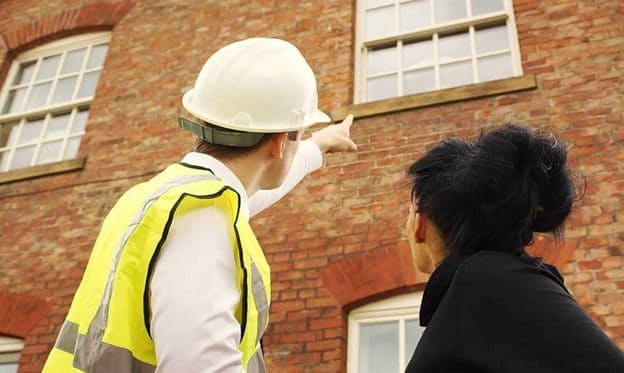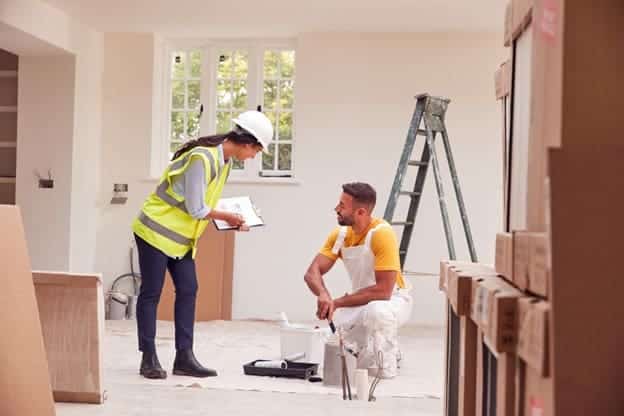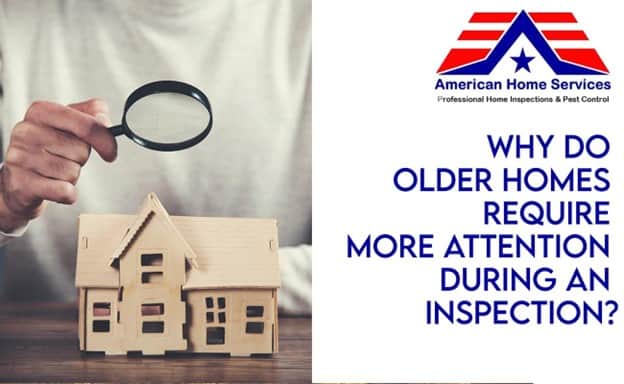When you are in the market for a new home, you may wonder why some houses are priced lower than others. One common reason is that older homes may have outdated features that require renovation and repair work. Identifying these in an older home may take more time and attention during an inspection. While this may seem like a downside initially, there are many benefits to buying an older home. A professional home inspection in Orlando, FL, helps identify all minor and major issues in a home, no matter how old it is. With extra care, an older home can be just as good as a brand-new one.
If you are buying a used home that’s more than a couple of years old, this article is for you. This blog post will explore why older homes require more attention during an inspection. From foundation issues to pests and more, we will cover facts you need to know about inspecting an older home.
What is a home inspection?
A home inspection in Orlando, Florida, is a visual examination of a home’s physical structure and systems, from the roof to the foundation. Inspectors look for problems that could affect the home’s value or pose a safety hazard to the occupants.
During an inspection, the inspector will note any visible damage and test the home’s systems, including the plumbing, electrical, and heating/cooling systems. The inspector will also look for signs of pests or other problems that could affect the home’s condition.
Why do older homes require more attention during an inspection?
As the home ages, it will inevitably experience more wear and tear. This is especially true for homes that have not been well-maintained over the years. Older homes tend to have more problems and will often require more attention during an inspection to identify any potential problems that may need to be addressed.
Some of the most common issues that inspectors will look for in older homes include the following:
- Foundation problems
- Roof damage
- Plumbing issues
- Electrical problems
- Pest infestations

A home inspection in Orlando Fl ensures the inspector brings all noteworthy issues to the surface before purchase, so the buyer doesnt have to repair them out of his pocket. If any of these problems are found, they will suggest the buyer have them fixed to maintain the home’s integrity. Ignoring these issues could lead to further damage down the road, so it’s important to take care of them as soon as possible.
What are some common problems found in older homes?
A number of common problems in older homes can lead to expensive repairs or, in some cases, pose health and safety risks. These include:
- Foundation issues: cracks, settlement, and shifting foundations are all common problems in older homes. Foundation repairs can be expensive, so it’s important to have any foundation issues addressed before they become worse.
- Roof problems: leaks, missing shingles, and other roof damage are common in older homes. Roof repairs can also be expensive, so it’s important to have any roof damage repaired through the seller.
- Plumbing problems: leaks, clogs, and outdated plumbing are all common problems in older homes. Plumbing problems often aggravate to lead to more serious issues such as mold. Plumbing repairs can be costly, so it’s important to have any plumbing issues addressed before they become worse.
- Electrical problems: outdated wiring, faulty outlets, and overloaded circuits are all very common electrical problems found primarily in older homes. Electrical issues can be dangerous and expensive to repair. Hence, it’s important to have any electrical issues addressed by a professional electrician before buying a home and signing the dotted line.
- Heating and cooling problems: outdated and overused heating and cooling systems are common in older homes. HVAC repairs can be expensive, so a qualified technician must address any heating and cooling issues before they worsen.
How can you prepare your home for a high inspection score?
If you live in an older home, you will know that an older home can require a bit more upkeep than newer homes. The same is true when it comes to preparing your home for inspection. Here are a few tips to help you prepare your older home for an inspection:
- Check for any obvious signs of damage or wear and tear. This includes cracks in the foundation, peeling paint, or a sagging roof. These potential red flags could lead to a lower inspection score.
- Make sure all of your appliances are in good working order. This is especially important if you have any older appliances that may be on their last legs. A broken fridge or stove could hurt your inspection score.
- Do a deep clean of your entire home, especially to areas that tend to get overlooked, like baseboards and behind appliances. While Inspectors will not be looking for signs of dirt and grime, it’s important to present your home well and ensure it is spruced up for an inspection.
- Take care of any minor repairs you’ve been meaning to get to but haven’t had the time for. Leaky faucets and cracked tiles may not seem like a big deal, but they can lead to deductions on your inspection score.
Following these tips can help ensure that your older home passes inspection with flying colors!

What should you do if problems are found during the inspection?
If any problems are found during the inspection, it is important to address them as soon as possible. This can mean either fixing the problem yourself or hiring a professional. If the problem is left unaddressed, it could further damage your home or even pose a safety hazard.
Orlando’s best home inspection companies give people living or intending to buy older homes peace of mind with a professional and thorough inspection. According to EPA, many older homes built before 1978 may even have serious health hazards, like lead paint or asbestos, that need to be removed before living in them. While it may take more time and Orlando’s best home inspection to inspect these hazards in an older home, it is important to ensure that all of these potential issues are identified to be addressed to keep you and your loved ones safe.

